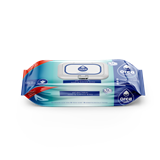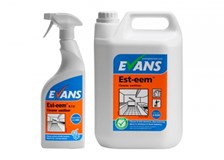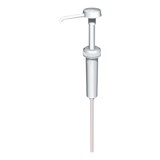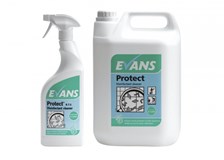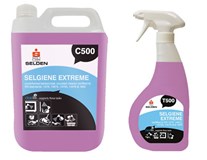BS EN 14476 Certified Virucidal Cleaning Products
Cleaning Virucidal products that meet British and European standards regarding killing the Covid-19 virus
In this section you will find a selection of products that are certified as BS EN 14476 This means this product has been tested and adheres to the BS EN 14476 standard providing lab evidence that it contains antiviral ingredients that are required to kill Poliovirus, Norovirus, Influenza A and adenovirus.
When looking for a suitable product, if the product includes mention of compliance with BS EN 14476 this confirms the product to be effective against viruses such as Covid-19. Products listed here must be used at the recommended dilution rate and contact time to be effective. Viricidal products should be used in high traffic areas to mitigate any risk of transmission of the disease.
Powerful sanitising formula kills viruses and bacteria on hands and surfaces. Packed in convenient flow packs of 90, these wipes carry a laboratory proven accreditation to kill bacteria and viruses. Buy today for swift UK delivery.
Multi-surface, unperfumed, cleaner and disinfectant.Kills bacteria and yeast and has virucidal activity against enveloped viruses (e.g. Coronaviruses).Buy Online today, for fast delivery.
Evans Est-eem Kills bacteria and cleans in one application. Conforms to BS EN 1276 & BSEN 14476 - 30 Second Contact and 99.999% bacteria are dead. Order online today.
Pelican dispenser for 5ltr bottle, dispenses 30ml dose per pump and sometimes referred to as ounce-o-matic pumps. This pelican pump dispenser attaches onto all 5 litre bottles of chemicals and many others as this is a screw on, attachable 5 litre dispenser pump comes with an adjustable fitting that will attach to 99% of other branded chemicals. It allows for consistent average measuring of 5l chemicals going into buckets and other dispensers when being diluted with water.
Evans Protect Disinfectant Cleaner 5ltr. Kills a wide range of bacteria. Passes BSEN 1276 BSEN 16777 and BSEN 14476. Leaves a clean fresh odour. Protect is also effective against enveloped viruses, including Coronavirus and helps to prevent cross-contamination.
Selgiene Extreme is effective against enveloped viruses including coronaviruses. Optimal disinfection for use in healthcare, catering and high-risk applications. Kills Coronavirus, Norovirus, E. Coli, Swine Flu, HIV, Hepatitis C, MRSA & Clostridium difficile. Passes BS EN 1276, 13704, 1650,14476 & 14675.
FAQ's BS EN 14476
BS EN 1276 pertains to being bactericidal, in other words prevents the growth and spread of harmful bacteria, BS EN 14476 certification means the cleaning product contains antiviral ingredients and is required to kill viruses In this section you will find a selection of products that are certified as BS EN 14476 This means this product has been tested and adheres to the BS EN 14476 standard providing lab evidence that it contains antiviral ingredients that are required to kill Poliovirus, Norovirus, Influenza A and adenovirus.
How do I know if my disinfectant is truly effective against COVID-19?
Not all surface sanitisers are manufactured to the same standards, only some are truly effective against COVID-19. Here you will learn which products are affective and which ones are not.
The minimum requirement for a chemical to pass the accreditation against SARS-CoV-2is a pass rate of a >four log reduction in the virus.
In addition to the standard methods, the following can also be used to demonstrate efficacy against COVID-19
- Independent pass against the > four log reduction
- Independence pass against EN 14476; EN 14476 to either limited spectrum virucidal activity or fill virucidal activity allows a claim against SARS-CoV-2
What dilution of product is effective?
This is an important question, because many commercially available disinfectants containing recognized antiviral active substances are not actually effective against SARS-CoV-2.
What you actually need to do is check the independent EN test results to ensure that the chemical has been tested and proven together for diltution in the appropriate surrogate virus. This is a step that many fail to check. When using these test reports to ascertain whether your chosen chemical is effective against SARS-CoV-2 the devil is actually in the detail. It needs to clearly say “at X dilution it meets the standard x” otherwise it is only certified neat.
Is your disinfectant compliant with the biocidal products regulation?
Again this this question is so important because this question is asking whether this disinfectant product is an authorized biocidal product; does it contain an active ingredient that is an approved active substance that appears on the EHCA which is a list of approved active substances.
What my current up-to-date research has showed, is that many substances that are awaiting approval or the or not approved list are being used to fog our schools are public areas up and down the UK.
Now this is very naughty, because to use substances which are not yet approved means that the subject matter expert‘s have not given their opinion on whether or not this substance is safe or not.
So in essence we are potentially spraying chemicals around our schools which are not safe to do so.
The disinfectant product must contain a list and active substance still in the BPR review program, Article 89 and supplied on the EU market by the substance supplier or product supplier named in the Article 95 list for the project time to which the project belongs.
How should disinfectant to be applied to affectively sanitise surfaces?
This question, and particularly the answer to this question is one that is often misunderstood. Most chemicals in the current environment are actually accredited ONLY for spray and wipe. To clarify these chemicals are ONLY tested when being sprayed on a hard surface for efficacy.
I’ve only seen 1 or maybe 2 that have been tested for fogging. So unless it has been clearly stated on the Technical Data Sheet, or the Safety Data Sheet, then it is not appropriate to be fogging or misting.
So in essence it is vital to follow the directions for use on the cleaning product. If it doesn’t say fogging on it don’t fog with it and if it does say fogging on it proceed with caution. The directions for use that I’m alluding to include following the correct dilution rate on the contact time indicated in the stand a text method used to validate antiviral efficacy.
Breaking down knowledge barriers.....

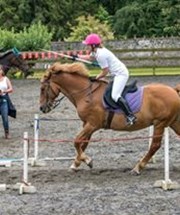
Are you ready for Hygiene 2.0?
The virus that effectively shut down the world in 100 days, has taught us a great deal about Hygiene, and particularly how to manage it. It has also taught us that we need a new strategy, to manage the effects of any future pandemics or breakouts, to slow the spread down without having to shut everything down.
Businesses, individuals; everyone has been through such a difficult and harrowing time over the last 12 months…. so now is the time to devise a plan to counter the effects of new virus outbreaks to allow us to manage it whilst still allowing businesses to function.
In 2007, statistician Nassim Nicholas Taleb defined “Black Swan” as an event that “is an outlier,” as it lies outside the realm of regular expectations. Black Swans by that definition are mostly unforeseen, rare, and can be created by geo-political, economic, or from other unexpected events.
To distinguish this COVID 19 event from the other epidemics we have endured recently would make it a Black Swan, but COVID 19 was not a Black Swan, because a Black Swan is an unpredictable event, but with the seasonal flu, norovirus and colds as frequently present as they are, and our seasoned, relevant and recent experience with pandemics, we should have seen this coming.
We have a society that makes it easy for infectious diseases to spread, we live in close contact, touch shared surfaces and share the same spaces and air. Have you noticed that this year you haven’t had a cold or flu? Most years either myself or my husband get a nasty cold and then we ‘share’ it with the rest of the family, but this year that hasn’t happened. This is due to increased hygiene procedures that everyone has put in place. When we go to a shared space, we sanitise; we sanitise everything we touch, shopping trolleys etc and time with other people has been very limited.
The fact that everywhere had to go in to full lockdown across the UK; not once but twice, is a real indication that our hygiene strategy just wasn’t working. Safe work places need to be an absolute necessity. I blogged a couple of weeks ago about returning to work, and not only shared kitchens need to be managed appropriately, but also work stations, chairs, bathrooms etc. Going to work, should be safe, and that can only be done through managing hygiene appropriately.
You can only manage hygiene by killing bacteria and virus’ or hand washing, and I blogged last week about making sure that your products carry the appropriate certifications such as BSEN 1276 and BSEN 14476. I’ve linked our website sections here so that you can see the products we carry which will help you to manage your hygiene appropriately. It is now more important than ever that everyone is managing their hygiene, and it has become business critical to a lot of businesses that we get through this pandemic without having to go in to lockdown again. Using appropriately tested, safe and effective products, is where to begin.
As I inferred previously, infection control has to change forever. Infection control shouldn’t just be something we do in hospitals, it needs to become a way of life. COVID has permeated everyone’s lives in some way or another, and some people have been altered forever, so we must take a new view on hygiene, and as a population take both individual and collective responsibility for the new hygiene strategy.
We must design our lives and our life styles with hygiene in mind. Urban design in the 20th Century was shaped by Cholera and War, so is it a sensible conclusion to remark that the 21st Century will be designed around Coronavirus and Climate? More space, wider doors, more green space, more cycling and walking, staggered commutes and start times (Munter and Ackerly) will be the way in which the 21st Century will be designed?
Will the more space approach be the ‘new’ strategy to avoidance of a new pandemic? Will this be the end of open plan offices, or will a more rigorous approach to cleaning and sanitisation be the answer?
We have been talking about new ways to manage hygiene in the home for while, and the International Forum on Home Hygiene discussed containing the burden of infectious diseases being everyone’s responsibility in 2018 – before this pandemic broke.
This new strategy needs to be created by policy makers, and held up nationally and internationally as a way forward by all countries. Sadly, as we have seen throughout this years pandemic, it was the divergence of approaches across the world which has lead to the spread of this virus, and the mismanagement of a united approach.
Businesses are looking for more expertise than ever before in terms of advice and guidance. Getting the right advice, specifically tailored to your unique situation or area is key in terms of making your own hygiene strategy. Making businesses safe for employees to come back rests firmly on employers, and it remains your responsibility to keep your team safe. Customer safety is also the responsibility of businesses, so in terms of burden that is a lot! Get the right advice, give us a call at Astral, our advice and guidance is free, so please use it!
- Munter, L & Ackerly, L. Guest Blog: Finally Ready for Hygiene 2.0? Royal Society for Public Health; Vision, Voice, Practice. https://www.rsph.org.uk/about-us/news/guest-blog-finally-ready-for-hygiene-2-0.html


